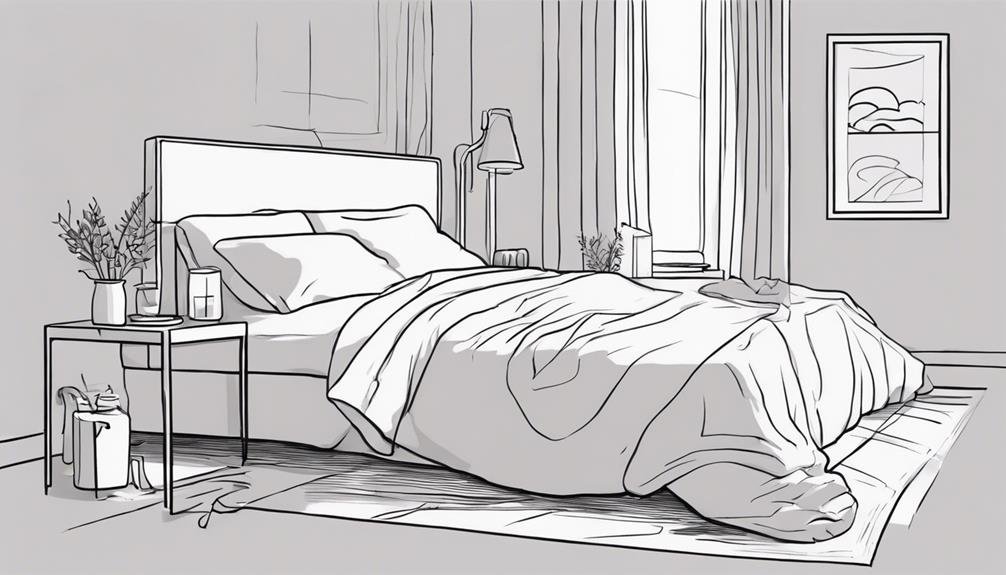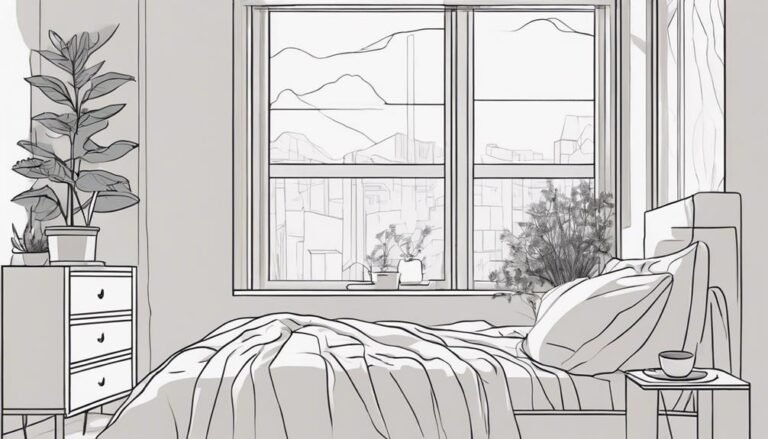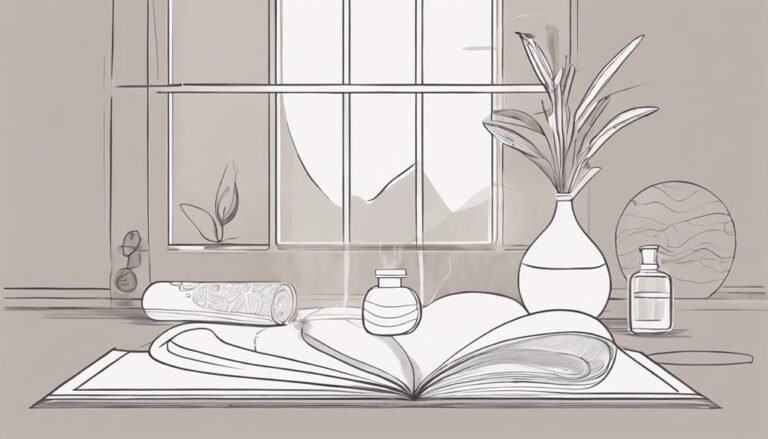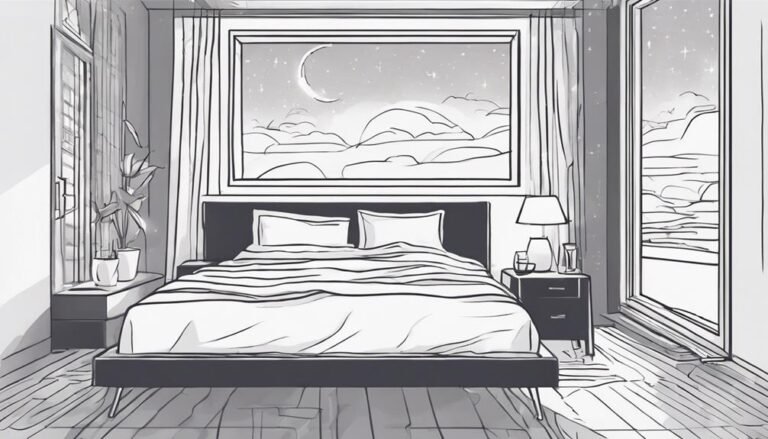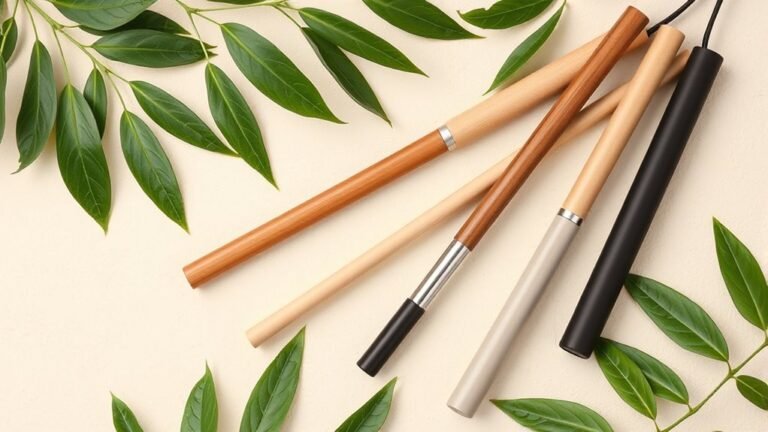5 Calming Bedtime Rituals for Men Over 40
To wind down effectively, start by creating a relaxing environment with soft colors and blackout curtains. Limit screen time at least an hour before bed to help your mind shift. Practicing mindful breathing can calm your nervous system; just focus on your breath for a few minutes. Enjoy a warm, caffeine-free beverage like herbal tea to signal your body it's time to rest. Finally, establish a consistent sleep schedule, aiming for 7-8 hours of quality sleep. By incorporating these rituals, you'll ease into a more restful night, and there's more valuable insight awaiting you to enhance your bedtime routine.
Key Takeaways
- Create a relaxing environment with soft colors and essential oils to promote sleep and reduce stress.
- Limit screen time at least an hour before bed to enhance melatonin production and improve sleep quality.
- Practice mindful breathing exercises to calm the mind and reduce anxiety before sleeping.
- Enjoy a warm, caffeine-free beverage like herbal tea to signal the body to wind down for restful sleep.
Create a Relaxing Environment
To create a calming atmosphere for sleep, start by transforming your bedroom into a serene sanctuary.
Choose soft colors for your walls and bedding; shades of blue or green can promote relaxation. Keep your space clutter-free, as a tidy environment helps clear your mind. You might also consider using blackout curtains to block out unwanted light and create a cozy, dark space.
Adding soothing elements like essential oils or a diffuser can enhance the ambiance, too. Lavender and chamomile are excellent choices for relaxation.
Make sure your mattress and pillows provide the right support, as comfort is key to a good night's sleep. Finally, adjust the temperature to a cool setting; cooler rooms often encourage better sleep quality.
Limit Screen Time
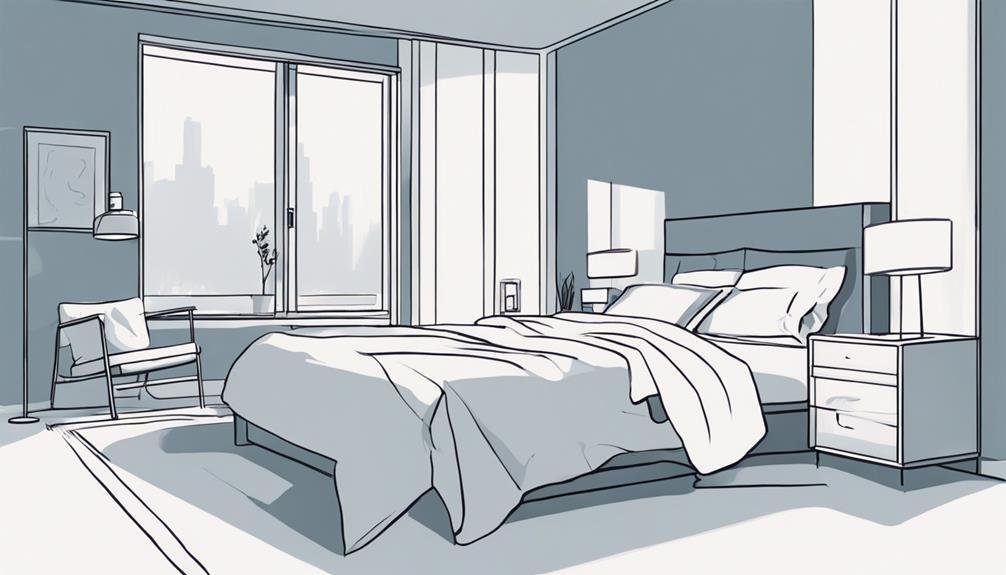
Cutting back on screen time before bed can greatly improve your sleep quality and help you unwind. The blue light emitted by phones, tablets, and TVs interferes with your body's natural production of melatonin, making it harder to fall asleep.
Aim to disconnect at least an hour before you hit the pillow. Instead of scrolling through social media or binge-watching shows, consider alternative activities that promote relaxation. You could read a book, listen to calming music, or enjoy a warm cup of herbal tea.
Practice Mindful Breathing
Practicing mindful breathing can help you unwind and prepare your mind for a restful night's sleep.
Start by finding a comfortable position, whether sitting or lying down. Close your eyes and focus on your breath. Inhale deeply through your nose, allowing your abdomen to expand. Hold for a moment, then exhale slowly through your mouth.
Repeat this process for several minutes, each time allowing your thoughts to drift away as you concentrate on your breath. If your mind wanders, gently bring your focus back to your breathing.
This simple practice calms your nervous system, reduces stress, and promotes relaxation. Incorporating mindful breathing into your nightly routine creates a soothing shift to sleep, ensuring you wake refreshed and rejuvenated.
Enjoy a Warm Beverage
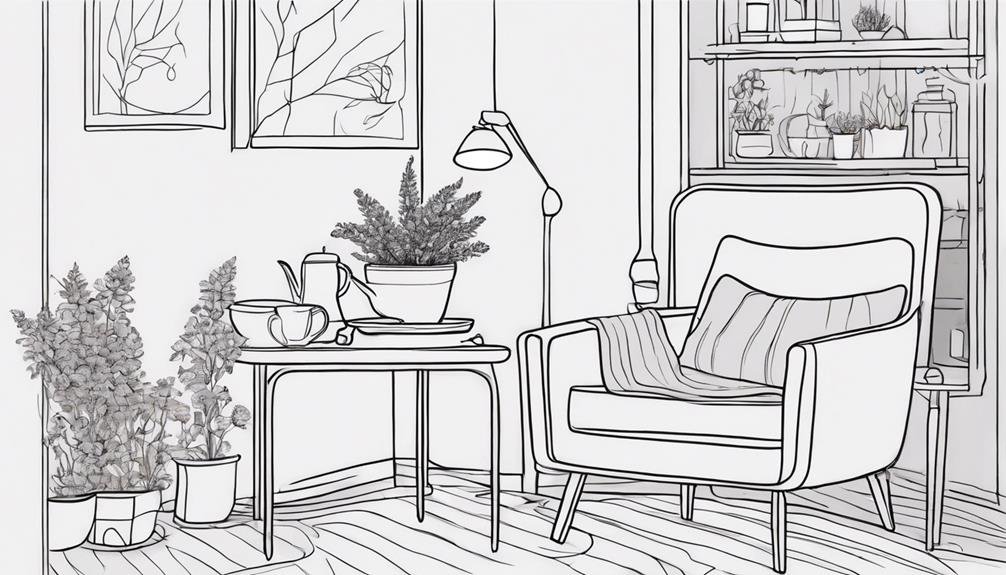
Sipping a warm beverage before bed can create a comforting ritual that signals your body it's time to wind down and relax.
Whether it's herbal tea, warm milk, or a decaffeinated option, the warmth helps soothe you and prepare your mind for sleep.
Choose a caffeine-free drink to avoid disrupting your rest, and consider flavors like chamomile or peppermint, known for their calming properties.
As you drink, take a moment to enjoy the aroma and texture, letting go of the day's stress.
This intentional act not only enhances relaxation but also gives you a chance to reflect on your day or practice gratitude.
Incorporating this simple ritual can greatly improve your bedtime routine and overall sleep quality.
Establish a Consistent Sleep Schedule
Establishing a consistent sleep schedule is essential for improving your overall sleep quality and well-being. By going to bed and waking up at the same time every day, you train your body's internal clock, making it easier to fall asleep and wake up refreshed.
Aim for seven to eight hours of sleep each night. Avoid late-night distractions like screens, which can disrupt your natural rhythm. Instead, create a calming pre-sleep routine that signals your body it's time to wind down. This might include reading, meditating, or practicing deep breathing exercises.
Questions
What Types of Warm Beverages Are Best for Sleep?
When you're looking for warm beverages to enhance sleep, consider chamomile tea, warm milk, or herbal blends with valerian root. These options relax your body and mind, making it easier to drift off peacefully.
How Long Should I Practice Mindful Breathing Before Bed?
As you settle into your cozy bed, take a deep breath, and practice mindful breathing for at least five to ten minutes. It'll help clear your mind and ease you into a restful night's sleep.
Can I Use Essential Oils for Relaxation?
Absolutely, you can use essential oils for relaxation! Try lavender or chamomile; they're known for their calming properties. Just add a few drops to your diffuser or mix with a carrier oil for massage.
What Should I Do if I Can't Fall Asleep?
If you can't fall asleep, try deep breathing or progressive muscle relaxation. Limit screen time before bed, create a comfortable sleep environment, and establish a consistent sleep schedule to help your body unwind.
Is Napping During the Day Beneficial for Nighttime Sleep?
Napping during the day can feel like a magic potion for some, but it might disrupt your nighttime sleep. If you're struggling with sleep, keep naps short and earlier in the day for the best results.
Conclusion
As you wind down for the night, remember, the path to restful sleep isn't just about closing your eyes; it's about the little choices you make.
Picture yourself slipping into that calming routine, feeling the stress of the day fade away.
You might be surprised at how these simple rituals can transform your nights.
So, why not give them a try tonight?
Who knows? You could wake up refreshed, ready to conquer whatever tomorrow throws your way.

